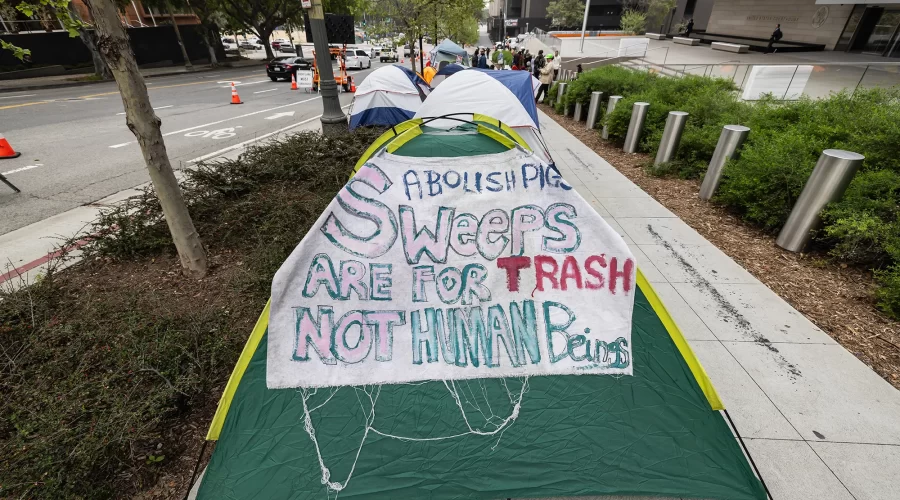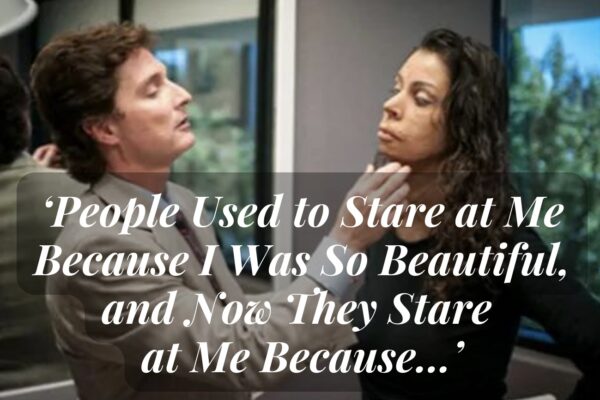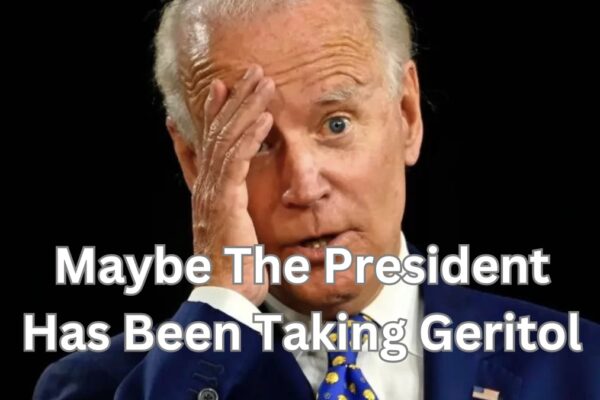Supreme Court Gives LA, Cities More Power
It will have strong repercussions in California, where Gov. Gavin Newsom and many city leaders welcomed the new power to sweep encampments. Homeless people and their advocates say the decision criminalizes poor people who have no other options, for simply existing.
CalMatters
The U.S. Supreme Court today granted cities more power to arrest, cite and fine people who sleep outside in public places — overturning six years of legal protections for homeless residents in California and other western states.
In Grants Pass v. Johnson, the court sided with Grants Pass in a 6-3 decision, ruling that an ordinance passed by the Oregon city that essentially made it illegal for homeless residents to camp on all public property was not unconstitutional. Justices Sonia Sotomayor, Elena Kagan and Ketanji Brown Jackson — all Democratic appointees — dissented.
The much-anticipated decision overturns a prior influential Ninth Circuit Court of Appeals ruling, and means cities no longer are prohibited from punishing unhoused residents for camping if they have nowhere else to go. It will have major ramifications for how California leaders and law enforcement handle homeless encampments.
“Homelessness is complex,” wrote Justice Neil Gorsuch, a Trump appointee, writing for the majority. “Its causes are many. So may be the public policy responses required to address it. At bottom, the question this case presents is whether the Eighth Amendment grants federal judges primary responsibility for assessing those causes and devising those responses. It does not.”
Regulating camping on public property does not constitute “cruel and unusual punishment” under the 8th Amendment — a clause that the court said is restricted to limiting the type and severity of punishment, not the reason for punishment. And the types of punishment Grants Pass imposed on homeless residents — “limited” fines and a maximum jail sentence of 30 days — don’t qualify as cruel and unusual because they aren’t designed to impose “terror, pain or disgrace,” he wrote.
The court also rejected the homeless respondents’ claim that ordinances banning people from camping, if there is no shelter available, essentially criminalize the very act of being homeless. Anti-camping ordinances, such as those adopted in Grants Pass, don’t take status into account; they apply to homeless people, but they also apply, for example, to vacationing backpackers and student protesters camping in front of municipal buildings.
Sotomayor, in her dissent, argued the court’s opinion leaves society’s most vulnerable people with an impossible choice: “Either stay awake or be arrested.”
“Sleep is a biological necessity, not a crime,” she wrote, joined by Kagan and Jackson. “For some people, sleeping outside is their only option. The City of Grants Pass jails and fines those people for sleeping anywhere in public at any time, including in their cars, if they use as little as a blanket to keep warm or a rolled-up shirt as a pillow. For people with no access to shelter, that punishes them for being homeless. That is unconscionable and unconstitutional.”
Ed Johnson, lead counsel for the homeless respondents, said while today’s decision is disappointing, it’s important to remember that it’s not up to the courts to solve homelessness.
“That job falls to all of us,” he said in a statement. “The solution to our homelessness crisis is more affordable housing.”
Activists supporting the civil rights of unhoused people decried the ruling, which they called the most important Supreme Court decision on homelessness in decades. They argued it could result in people getting arrested simply for being homeless.
“The Supreme Court’s profoundly disappointing and unjust decision to overturn the Ninth Circuit’s ruling is a severe blow to the rights of unhoused individuals,” Jesse Rabinowitz, spokesperson for the National Homelessness Law Center, said in a statement. “Arresting or fining people for trying to survive is expensive, counterproductive, and cruel. While we are enraged, we are not surprised that this Court has again put the needs of the rich and powerful before the needs of everyday people struggling to get by.”
But not all elected officials were pleased with the outcome.
“Today’s decision is not surprising given the make-up of the Court but disappointing nonetheless,” Los Angeles Mayor Karen Bass, who has prioritized clearing encampments in her city by moving unhoused people into hotels, said in a statement. “This ruling must not be used as an excuse for cities across the country to attempt to arrest their way out of this problem or hide the homelessness crisis in neighboring cities or in jail. Neither will work, neither will save lives and that route is more expensive for taxpayers than actually solving the problem.”
Marisa Kendall covers California’s homelessness crisis for CalMatters. With more than six years of experience navigating this complex topic, Marisa has won multiple awards for her sensitive, comprehensive coverage. She strives to provide nuanced, in-depth reporting that both explains convoluted California policy and highlights the stories of people on the street affected by Sacramento’s decisions. She can be reached at marisa@calmatters.org
CalMatters.org is a nonprofit, nonpartisan media venture explaining California policies and politics. Published with permission of CalMatters.




